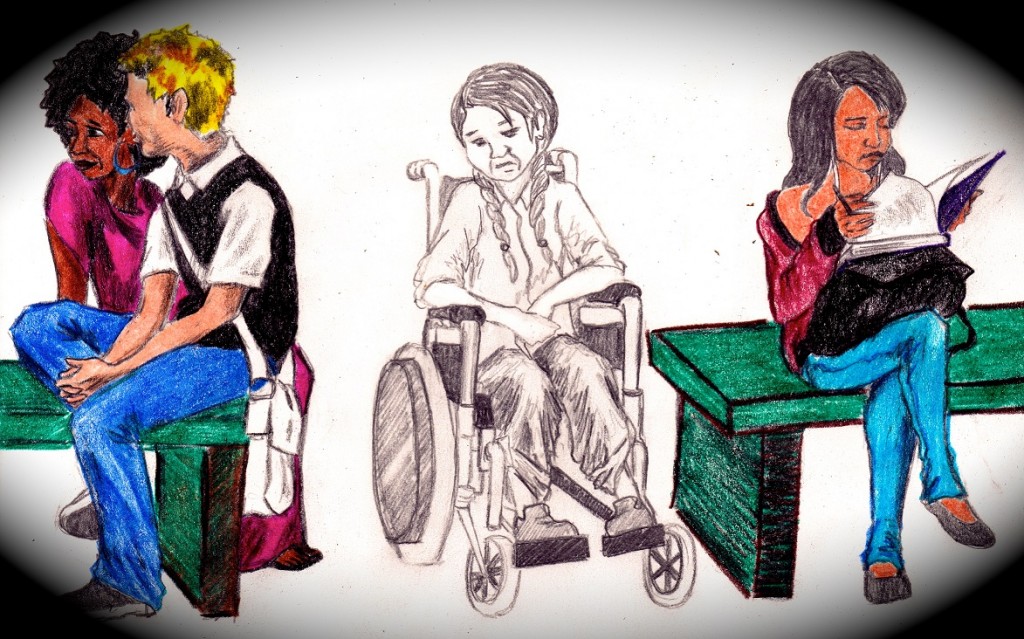Disability on the 5Cs
Warning: ableist language/slurs (used as examples of ableism) in article
When my friend recently had to consider getting a wheelchair in order to be able to get across campus quickly, efficiently and without pain, the world suddenly became one enormous obstacle course: Going up and down stairs in the older dorms on campus was suddenly out of the question. Walking with friends around campus suddenly meant knowing the route beforehand in order to anticipate access to wheelchair ramps. It also meant having everyone know, just by looking at you, that you are disabled.
Disability as a term can refer to a wide range of physical and mental differences in an individual, from physical disability to learning differences to mental health, and one in five Americans is disabled some way. Yet to acknowledge someone’s disability is seen as treading on eggshells in conversation. There is a hidden stigma to having a disability, which is accentuated further when one’s disability is visible. The stigma, discomfort, and ableist language (“She’s crazy”; “That’s retarded”; “I’m such a cripple”) all create an environment on campus that makes having a disability feel like being a burden to others rather than a difference that should be accommodated for, acknowledged, and respected.
“It feels like you’re being constantly interrogated and like a burden to the college and to peers for having to do things for those with disabilities,” said Maddy Ruvolo (SCR ’14), who has started the 5C Disability, Illness and Difference Alliance (DIDA). “There’s no framework for understanding that what is so easy for one person may be so hard for someone else. [Those without disabilities] don’t understand that my ‘tired’ is different from their ‘tired’.”
One of DIDA’s goals is to provide a safe space for those with disabilities to hold discussions varying from personal updates to conversations about how to raise disability awareness on campus and how to promote a community that willingly and positively accommodates for people’s needs. As part of this goal, it is essential to raise awareness on campus of what it means to be disabled, and how friends, administrators and professors can be helpful allies. “A lot of what makes having a disability hard is related to how people treat the person with the disability and how it is seen, rather than the direct pain that the disability causes,” Maddy explained. “It can be very isolating.”
So the question remains, how can the wider 5C community be supportive and accommodating to the disabled community in a way that does not make those with disabilities feel like a burden? Disabilities can seem invisible, and having to ask for help often means having to “prove” that one is disabled. Most of the discourse around disabilities is clinical, with doctors providing the “official diagnosis” and “proof” of one’s disability. Students who are still getting diagnosed tend to have a harder time receiving accommodations, such as a more accessible dorm room or extended time on tests and papers, and those with medical evidence (so to speak) still must ask their professors for permission.
Promoting a culture in which accommodations are acknowledged and respected (and are not misconstrued as students taking advantage of professors) means opening dialogue with administration and professors about how to honor student privacy and differences of the body. There are “so many different needs, languages [i.e., terminology] in a broad spectrum of communities within the larger disabled community. We need to rethink bodies and what they can do,” said Maddy. “We are talking about why people with disabilities feel excluded, and how does this tie into conversation about bodies and how we think about bodies?” This starting question could be used in staff, student and faculty workshops as a starting point for integrating disability-talk into the campus culture. “We’re not ‘celebrating a minority’,” Maddy said, “we’re not here for anyone’s inspiration.” We, including able-bodied and disabled people, are here to learn, and to be able to achieve our full potential as students and as people. We as a community need to start thinking about and talking about how our bodies come into play in our learning experience, and how those whose bodies are different can be comfortably, respectfully and welcomingly brought in to the conversation without feeling like a burden.

![[in]Visible Magazine](https://community.scrippscollege.edu/invisible/wp-content/uploads/sites/5/2011/04/Invisible-Masthead-2011-Spring1.png)








No comments yet... Be the first to leave a reply!